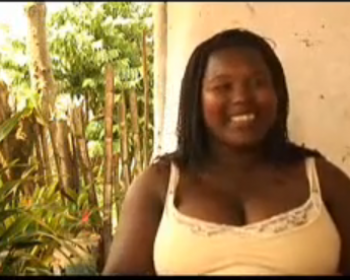Uruguay
Restricting free expression, association and the free flow of information on the internet has become a global trend and its intensity and impact is greatest in countries lacking a culture of democracy or strong human rights regimes. People who speak out against repression risk their own freedom and safety and the sites that carry their online denouncements are often censored or banned. A new APC project “Internet rights are human rights” starting in November 2010 builds on our lon...
Last month Valeria Betancourt was named the third most influential person in internet public policy in Latin America in a survey carried out by a well-known ICT policy and research think-tank. She also became APC’s policy manager taking over from South African Willie Currie, after leading our policy work in Latin America since 2001.
APC member in Rosario Argentina, Nodo Tau, has been working to help marginalised communities access ICTs for fifteen years. But they do not stop at access – Nodo Tau believes that technologies can change people’s lives, and that technology has its place on the road towards social justice. On behalf of the APC, we wish to congratulate you on your hard work and invite our readers to lea...
On October 1 APC´s former policy manager was sworn in as a councillor at the South African telecoms regulator ICASA after being nominated by civil society and private sector associations. So how does Willie feel about leaving APC after seven years heading up our policy programme? In this interview Willie talks about how the internet policy landscape has changed since he joined APC and what he�...
In Uvira, Democratic Republic of Congo, women’s cassava root crops were being destroyed by pests but thanks to some internet training, they increased their healthy crop production and agricultural knowledge. In the Dominican Republic, women from an agro-processing cooperative learned to better manage their production thanks to an ICT training -many of them were 50 years old or more, which is ...
In November 2009, the Dominican Republic became the first Latin American country to pledge to include a ‘gender perspective’ – considering the distinct needs of men and women— in every technology initiative and policy developed by the government. The tool the Dominicans chose to design and evaluate their progress from now on is the APC Gender Evaluation Methodology. This is ...
APC staff and members will be in Vilnius, Lithuania, for the fifth meeting of the Internet Governance Forum. We’ll be running two workshops and hosting a pre-event on human rights. Here’s a quick review of our activities. We’ll be providing on-site coverage for those of you following the IGF remotely.
http://www.flickr.com/photos/jfraissi/4286109087 – John FraissinetJust as women are disproportionately the victims of violence worldwide, the situation is just as bad online. The UN estimates that 95% of aggressive behaviour, harassment, abusive language and denigrating images in online spaces are aimed at women and come from partners or former male partners. Other surveys show that the v...
On an improvised stage, locals act out a play about an African-Colombian girl who feels rejected because of the colour of her skin. It’s part of a community gathering to highlight violence against women in a small sugar-plantation town a few miles from Cali. For eight months, men and women of all ages attended workshops on gender and technology as part of piloted trials of the Gender Evaluati...
At the United States Social Forum on June 24 fifty politically progressive technologists came together for the first US Progressive Techie Congress. The Congress emerged with a statement applauded by other socially-responsible networks like the APC as “a great set of principles”.

Association for Progressive Communications (APC) 2022
Unless otherwise stated, content on the APC website is licensed under Creative Commons Attribution 4.0 International (CC BY 4.0)




